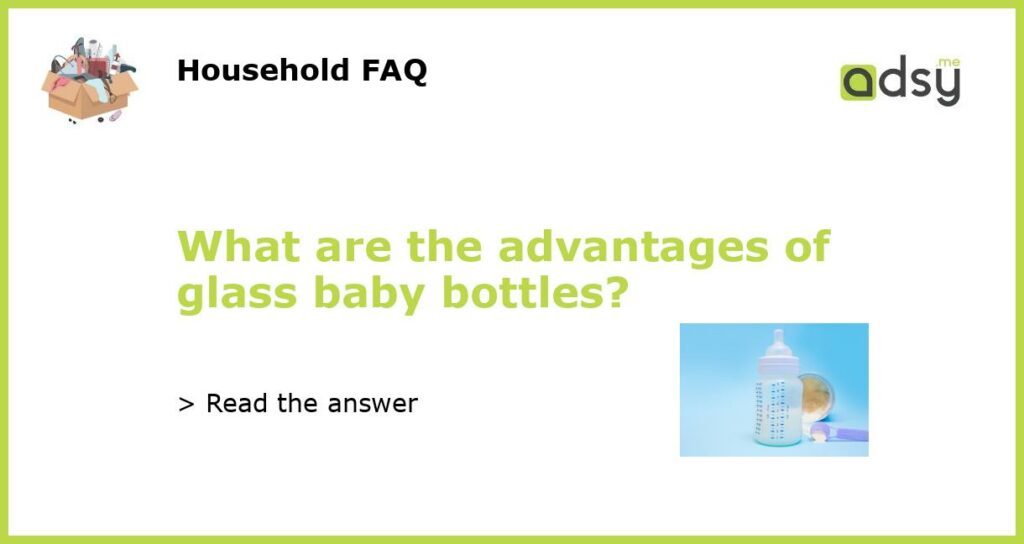Advantage 1: Durability and Reusability
Glass baby bottles are highly durable and reusable. Unlike plastic bottles, glass bottles don’t scratch or warp easily, which makes them last longer. Glass also doesn’t absorb any odors, flavors or colors, and hence, won’t affect the taste of your baby’s milk or formula. Moreover, glass bottles can withstand high temperatures and can be sterilized easily without any worry of chemicals leaching into the bottle’s contents.
Advantage 2: Health Benefits
Glass baby bottles are deemed healthier than plastic bottles since glass is a non-porous material, meaning that it won’t release any harmful chemicals, such as Bisphenol A (BPA), when heated or used for an extended period. Experts claim that BPA is linked to various health problems, including developmental and neurological issues in infants and young children. Hence, preferring glass bottles over plastic is a wise choice to reduce exposure to harmful chemicals.
Advantage 3: Eco-Friendliness
Glass baby bottles are eco-friendly since they are reusable and recyclable. When compared to plastic, glass bottles produce less environmental pollution, making them a preferable choice for eco-conscious parents. You can continue using glass bottles for multiple babies, which is not possible with plastic bottles, saving you both money and the environment. Furthermore, glass is made from sand, which is a natural resource and abundant on our planet.
Advantage 4: No Discoloration or Staining
Unlike plastic bottles, sunlight and heat do not change the color or alter the composition of glass feeding bottles. Heat or sunlight exposure can cause some plastic bottles to yellow or cloud, making them unusable over time. Glass bottles retain their original color and are less likely to discolor or stain, giving them a prolonged usage period.
Advantage 5: Easy to Clean and Maintain
Cleaning glass baby bottles is trouble-free since they can be washed in a dishwasher or sterilized using a steam sterilizer. Unlike plastic bottles, glass bottles do not have pores for bacteria to accumulate, which reduces the chances of contamination. Moreover, glass bottles are easy to maintain since they do not corrode or rust, and hence, the bottle will not affect the quality of milk or formula it contains.






